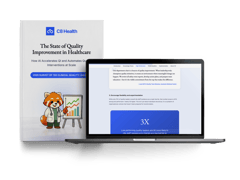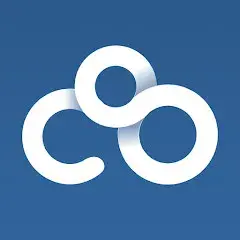
Advantages and Disadvantages of Health Information Technology
When it comes to new advancements in information technology, healthcare professionals must carefully decide: do the benefits outweigh the risks? We know that healthcare IT can improve patient care, reduce errors, and improve efficiency. But it also presents risks like data breaches and high implentation costs.
Still, it's increasingly popular with 88.2% of US physicians using EMR/EHR systems and 2.34 billion e-prescriptions issued in 2022. For health IT to be valuable, it needs to have a positive impact on patient care and the healthcare environment. Below, we'll explore advantages and disadvantages of health IT and explore its challenges in today's industry.
Meet the expert
Mical DeBrow is an accomplished healthcare leader and clinician with extensive expertise spanning pharma, healthcare payers and providers, and healthcare information technology.
What is Health Information Technology?
Health Information Technology, or Health IT, is all about using tech in healthcare. It's used to store, manage, and share health information. This can be anything from patient medical records to research data and administrative details. It can improve communication in healthcare and enhance the quality of care provided.
Some examples of health IT include:
- Knowledge management platforms: A unified system that digitizes point-of-care guidance, ensuring access to up-to-date, locally vetted content.
- e-Prescribing: This enables physicians to send prescriptions electronically to the pharmacy, eliminating the need for paper prescriptions.
- Electronic Health Records (EHRs): These systems store patient's medical history, including diagnoses, medications, treatment plans, and laboratory test results.
While health information technology is a pillar of any hospital, many organizations struggle with it. Download our latest white paper, "Healthcare Has a Knowledge Problem," to learn more.
Advantages of Health Information Technology
Enhanced Patient Care
Some Health IT solutions allow you to harness all relevant information in one place-for example patient data, or clinical best practices. When you can strategically disseminate content, care delivery is more efficient and focused, and this seamless knowledge management can better patient care. Clinicians no longer have to wait hours or days to access the information they're seeking out. These systems provide real-time guidance to healthcare providers, often compatible with different devices.
Reduction in Drug Errors
With the advent of Health IT, drug errors should significantly decrease, leading to safer medication practices and improved patient outcomes. Misreading paper records, a frequent issue in the past, especially during long shifts, is virtually eliminated with digitized data. EHRs and clinical decision support systems can automatically check for drug interactions, allergies, and inappropriate dosages.
Improved Workflow Management
One of the key benefits of Health IT is improved and automated workflow management. It gets rid of manual tasks and information roadblocks, helping healthcare workers who are short on resources. By smartly moving data through improved workflows, Health IT ensures the right information gets to the right people when needed. This leads to:
- Better efficiency: It takes care of routine tasks, so healthcare workers can focus on taking care of patients.
- Better decision-making: It provides important data quickly, helping with accurate diagnoses and treatment plans.
- Fewer mistakes: It automates key steps to cut down on errors and make patient care safer.
- More productivity: It gets rid of unnecessary steps and makes processes smoother, helping to take care of more patients.
Enhanced Data Security
While managing data with Health IT should ideally be easy, it can have complexities due to strict regulations such as HIPAA. However, these rules help protect patient data from cyber-attacks, which are a big concern today.
By using strong cybersecurity measures, Health IT can keep sensitive patient data safe from threats, including ransomware attacks.
Better Patient Outcomes
Health IT leads to better patient outcomes. Effective knowledge management allows clinicians to make informed decisions at the point of care, resulting in more effective treatments and faster recovery times. These cloud-based solutions improve health administration by creating a complete clinical picture for optimal care.
Long-Term Cost Efficiency
Implementing Health IT does involve significant upfront costs for software, hardware, and training. However, the long-term cost savings through improved efficiency, better outcomes, and reduced administrative burden can often outweigh these initial investments.
For example, knowledge management platforms offer searchable repositories for best practices, protocols, and guidelines, saving on efficiency.
» Looking to improve your healthcare ROI? Here's how knowledge management systems can reduce healthcare costs.
Challenges with implementation of Health Information Technology
Security Concerns
One of the biggest disadvantages is the security risk associated with health IT. Protecting patient information requires constant vigilance and focus; any lapses could compromise confidential patient data. This necessitates the need for risk management to improve healthcare quality.
Lag in Technology
Often during emergencies, technology does not move as fast as humans. Even though the information is instantly available, the time taken to enter and process the data might not match the situation's urgency.
Workflow Mismatch
Effective collaboration is essential not just among healthcare providers but also with the medical tools they use. However, every clinician has a specific workflow, which may not align with the workflow recommendations of the Health IT system. The inability to customize within the system often leads to waiting times, affecting patient care.
All these disadvantages do not negate the immense potential and advantages of health IT but rather serve as areas that need improvement and attention.
» Discover more about knowledge management's roles and challenges.
Embracing Health Information Technology for Enhanced Healthcare
Knowing the advantages and disadvantages of Health Information Technology is one thing. The next is finding a solution that can help you provide better care in your healthcare setting and create better systems for your teams.
C8 Health's knowledge management platform was designed by medical doctors who understand clinical needs. It integrates easily with systems and can help reduce costs in healthcare. When looking for the right Health IT system, make sure its features align with your healthcare goals and administrative needs.


